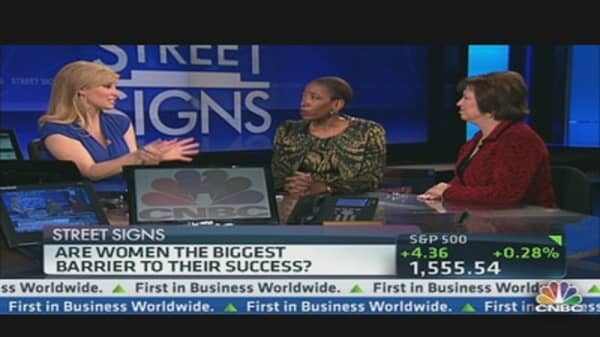Want to know what would make your workplace a winner?
It turns out that flexible hours, employee engagement and innovation are key ingredients for an employer's success, according to a new survey.
The Families and Work Institute and the Society for Human Resource Management announced the winners of their annual workplace excellence award, and they range from Delta Airlines to tiny Noble-Davis Consulting, in Solon, Ohio.
The prize, officially called the Alfred P. Sloan Awards for Excellence in Workplace Effectiveness and Flexibility, goes to approximately 300 companies annually that demonstrate workplace effectiveness in a variety of ways, according to Ellen Galinsky, president of the Families and Work Institute.
(Read more: College–educated millennials seek a work–life balance: Study)
Employers fill out questionnaires to compete for consideration, and then surveys are sent to the employees of the firms that look most promising. If the response rate from employees is high enough, and the ratings are sufficiently impressive, the employer makes the grade.
Typically, the winners demonstrate creative approaches to fostering employee engagement and motivation—and they find interesting ways to add flexibility to the workplace. "When I read the winners' write–ups, I'm blown away with the innovation that I see," Galinsky said.
A case in point is consulting firm Noble-Davis. Employees there have enormous flexibility about where and when they work, according to Pamela Noble, founder and a vice president. Some come in at 7:30 a.m., others at 10 a.m., and some regularly work at home several days a week.
"Our work mode is, if the client's happy and the work is going out the door right and on time, we are very flexible about how that employee gets that work done."
Noble-Davis makes this possible by enabling everyone—including the receptionist—to work remotely. Noble herself, who is planning to retire soon, worked from Florida for roughly two months last winter.
(Read more: The great shrinking office? More companies hire remote workers: Survey)
Another distinguishing fact about the company is that employees have a large stake in its success since they are paid a percentage of collections from their clients. "All our employees work like entrepreneurs," Noble said. "They are very invested in keeping the client happy."
That much connectedness can make it hard for employees to turn off work, but Noble says that's not a problem. Every employee working with clients has colleagues who can provide backup, and in the firm's line of business—retirement plans—Noble says "there isn't anything that's so immediate that if you didn't get back to a client within a few hours, it couldn't wait."





